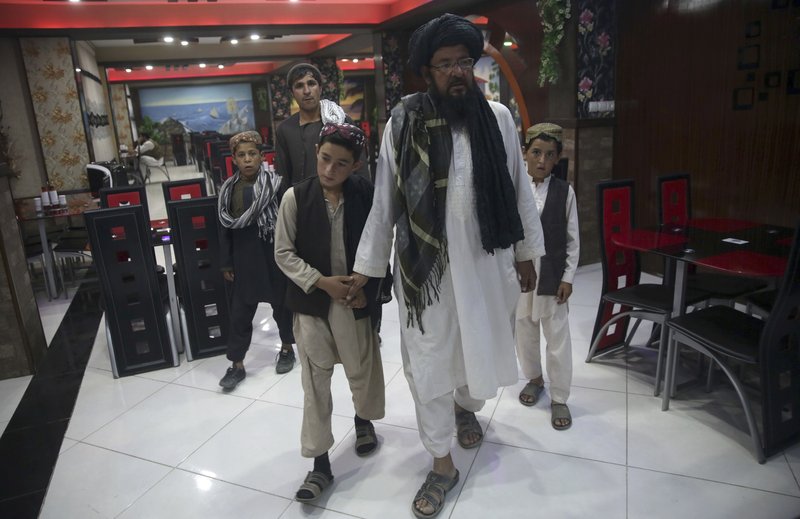Both state-owned Al-Ahram and independent Al-Shorouk start off Tuesday’s papers with a story about the rift between political forces over a plan to update and reactivate a draft law intended to combat political corruption, previously known as the Treachery Law.
In a press statement, Deputy Prime Minister Ali al-Selmy addressed the impending return of the Treachery Law. Al-Shorouk quotes him as saying, “The bill will come into force within the upcoming days, after introducing some amendments,” which will stipulate the punishments for those proven to have abused authority and been involved in financial crimes.
Al-Ahram adds that while both the Muslim Brotherhood and Salafis refused to attend the meeting – calling it “a waste of time” – the majority of other political parties, including National Association for Change and the Free Egyptians Party, confirmed their complete support for the Treachery Law's reactivation.
A military court on Monday issued a year-long suspended sentence to 76 defendants arrested for assaulting the Israeli and Saudi embassies, as well as the Giza Security Directorate, on 9 September, reports Al-Shorouk.
Figure discrepancies appear between Al-Shorouk and the liberal opposition paper Al-Wafd, with the latter stating that the verdict is a six-month suspended sentence and that there are 73 defendants.
The verdict was met with loud cheers by defendants' families, who chanted, “The people and the army are one hand,” reports Al-Wafd.
Both independent and state-run papers continue to cover the lawyer-judge dispute, but take different angles on the situation.
Prime Minister Essam Sharaf has met with prominent Lawyers Syndicate members in a bid to reach a satisfactory solution to the crisis.
The independent papers point fingers at Sharaf’s abortive attempt to contain the “strife.” The meeting ended on Sharaf's suggestion not to make a final decision regarding controversial Articles 18, 132 and 133 until parliamentary elections are held.
The non-decision received contradictory responses. “The meeting was fruitful,” Montasser al-Zayat, a prominent Islamic attorney, told privately run Al-Tahrir, saing he expects the crisis will come to an end in the next 48 hours.
However, lawyer Mokhtar Noah was quoted as saying, “Sharaf doesn’t seek to solve any crisis, but just complicates it more … He can’t manage the country’s affairs, so how would he solve the crisis?”
On the other hand, state-run papers Al-Ahram and Al-Akhbar merely mention Sharaf's suggestion that there are “hidden hands” behind the escalation of the conflict between judges and lawyers seeking to harm Egypt. They note that the lawyers left the meeting “empty-handed.”
Beside the mounting tension on Egypt’s political scene, the news of UNESCO (United Nations Educational, Scientific and Cultural Organization) granting Palestine full membership manages to find a space on the front pages of today’s papers.
Apparently, UNESCO is facing serious consequences for its decision, with the US, Israel’s most important ally, halting its funding for the organization, which represents 22 percent of the UNESCO budget,” says Al-Shorouk.
Unsurprisingly, Israel announced that it would follow in America’s steps by cutting off its funding, a blatant slap in the face to UNESCO.
India, China, France, Russia and Brazil are among the 107 countries that backed Palestinians. While 14 countries rejected the membership resolution, 52 countries preferred to abstain, including the UK, according to state-run Al-Gomhurriya.
UNESCO is the first UN agency the Palestinians have sought to join since applying for full membership in the UN on 23 September.
In an op-ed, Khaled Salah, editor-in-chief of Youm7, criticizes the considerable expense spent on constructing a massive tower in central Cairo, with an Egyptian flag hoisted on top.
The tower, which is privately financed, was inaugurated Monday in celebration of the 38th anniversary of Egypt’s 1973 war against Israel.
“I can’t imagine this step is taken out of excessive patriotism,” says Salah. The author believes that such enormous expenses do not express true nationalism, “especially considering that the same flag is raised over the Maspero building.”
“Sometimes we turn the great values, such as patriotism and ownership, into silly, costly actions at inconvenient times,” Salah concludes.
Egypt's papers:
Al-Ahram: Daily, state-run, largest distribution in Egypt
Al-Akhbar: Daily, state-run, second to Al-Ahram in institutional size
Al-Gomhurriya: Daily, state-run
Rose al-Youssef: Daily, state-run
Al-Dostour: Daily, privately owned
Al-Shorouk: Daily, privately owned
Al-Wafd: Daily, published by the liberal Wafd Party
Youm7: Daily, privately owned
Al-Tahrir: Daily, privately owned
Sawt al-Umma: Weekly, privately owned
Al-Arabi: Weekly, published by the Nasserist Party




